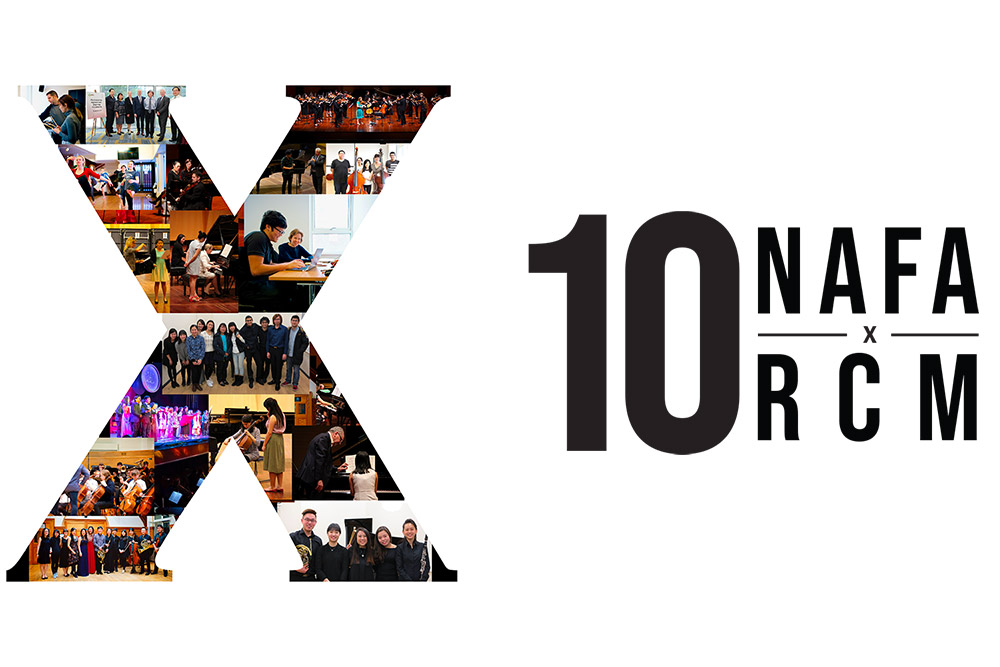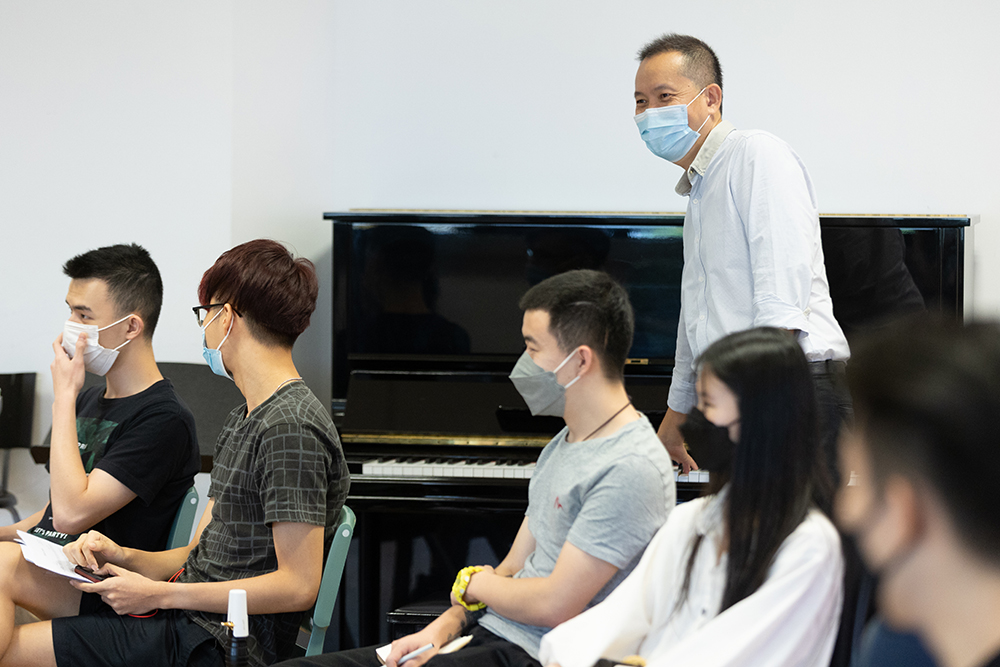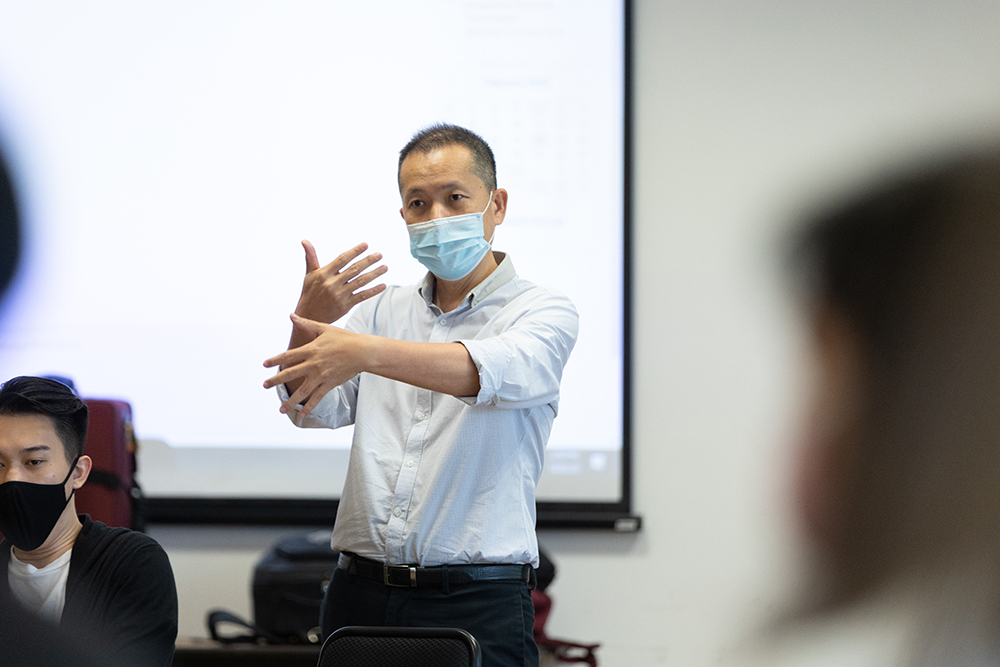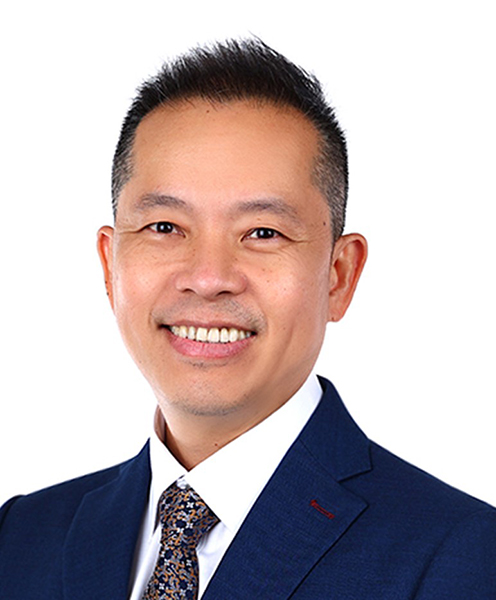By Dr Ernest Lim, Dean (School of Music)
It has been 10 years since the Nanyang Academy of Fine Arts (NAFA) embarked on its partnership with the esteemed Royal College of Music [London] (RCM). Since then, both institutions have grown from strength to strength, with a deepening sense of camaraderie and complementary ambitions. As NAFA looks to mark the 10th year anniversary of this partnership with a celebratory performance at the rejuvenated Victoria Concert Hall on 2 April 2022, we speak to Dr Ernest Lim, Dean of NAFA’s School of Music, to hear his take on our journey together so far.
NAFA and the Royal College of Music’s 10th Anniversary Celebration Concert

2 April 2022, Saturday, 7.30pm to 9.15pm
Victoria Concert Hall (11 Empress Pl, #01-02, Singapore 179558)
Tickets available here: https://nafarcm10.eventbrite.sg
Livestream available on 2 April 2022, at https://tinyurl.com/nafarcm10live
#nafamusic #rcmlondon #nafaxrcm #tenon
-
Dr Ernest, please tell us more about your role as Dean, School of Music, NAFA.
As a Dean of Nanyang Academy of Fine Arts’ (NAFA) School of Music, I wear multiple hats. My main responsibility is to oversee the music programme, and to the best of my abilities, making sound and effective decisions in leading the School for both my students and colleagues. As an educator, I still teach and have been involved in conducting lessons for community music projects, as well as training educators for classroom settings and individual instrumental teaching. I am a trained pianist with specialisation in piano pedagogy, so becoming a dean (in Jan 2020) was a major shift for me – still, based on my knowledge and intuition as an educator, I continue to give my best every day.
On a personal note, my mission is to see how we can keep the music programme relevant, providing offerings that help future-proof our students’ pathways, while inspiring and preparing them as mid-21st century musicians, allowing them to be in touch with a variety of career options and opportunities in the music profession. Hopefully, in the future, they can look back at their NAFA days and maintain that their training was useful.
-
How has our partnership with RCM impacted NAFA?
On top of having NAFA to franchise their programme through a 2-year top-up degree, Royal College of Music (London) (RCM) has also been very generous in allowing for their year-1 and -2 curriculum to be plugged into our Diploma courses. I have seen how our curriculum has evolved to be more aligned with a standard conservatoire programme of global standards. We have streamlined the curriculum to four pillars to be more focused, (i) Principal Studies, (ii) Professional or Faculty studies, (iii) Music in Context, (iv) Aural and Musicianship skills. Along the way, we have also included programmes to develop local context, such as industry-based learning, cross-disciplinary creative practices, creative improvisation with interdisciplinary collaboration as well as sharpening our students’ digital capabilities and entrepreneurial skills.
I would say both RCM and NAFA have grown and benefitted from our partnership. The partnership allows for RCM to include another dimension to their identity, by being more plugged in to Southeast Asia and East Asia, while being able to offer something for traditional ethnic musicians from the region. For example, our alumnus Chew Jun Ru, was announced as the first Erhu player to graduate from the RCM’s Bachelor of Music (BMus) Programme. Likewise, RCM also encourages us to create our own modules that are unique to our identity. For example, we have modules in Ethnomusicology, Music Therapy Techniques, Schenkerian Analysis, and Creating Music and Sound Design for Theatre, which were all developed here. RCM has also influenced us to collect more baroque instruments (such as the fortepiano, harpsichord, baroque timpani etc.), so that our faculty and students have access to historically informed performance in Singapore, to close the knowledge gap on how music was performed centuries ago. We have also invited their specialists to conduct lessons for our students.
Parallel to this, we also take a page from how RCM takes student feedback very seriously, making necessary changes to cater to students’ needs. An example would be assessments, where more options are given to students with unique requirements. This concept of inclusion goes one step further, as we continued to develop programmes for senior community music projects, and teaching programmes for preschools and primary schools. This is also very much reflective of NAFA’s overarching mission of enriching lives and communities, and fulfilling both personal and professional needs.

|
|
“The international placement with RCM is equally important, as I can see a very visible transformation in our students who have done their placement in London. They return refreshed, as different musicians with a global perspective and more mature and all-encompassing approach to their works and collaborations. The cultural impact on them and exposure is of intangible value.”
|
Photo credit: Chung Ee Yong
|
|
|
Overall, our staff and students have also seen more opportunities for their development. Our lecturers have the chance to visit RCM to observe their best practices in pedagogy, classroom delivery, and student assessments. Through this, we are able to get a holistic view of what is expected from a world-class institution. Our students also benefit from having masterclasses with visiting RCM professors. There are exchange programmes, and this results in synergies in our outreach projects such as the Nanyang International Piano Academy and the Nanyang International Music Competition, where RCM professors are on the faculty and judging panel.
More importantly, it is clear that our students have benefitted from the partnership. More NAFA graduates are forming their own performing groups, with a keen focus on cross-cultural music practices, such as Stringwerkz (featuring three Erhu players and one cellist); graduate Dayn Ng, who formed MUSA; and Christoven Tan whose works feature both east and west sensibilities with a multi-disciplinary angle. The Southeast Asian dimension is a common thread that runs through our graduates’ identities, and this is an area unique to NAFA.
The international placement with RCM is equally important, as I can see a very visible transformation in our students who have done their placement in London. They return refreshed, as different musicians with a global perspective and more mature and all-encompassing approach to their works and collaborations. The cultural impact on them and exposure is of intangible value.

|
|
“To our students, you will never know what lies ahead for you, be true to yourself and be a responsible individual.”
|
Photo credit: Chung Ee Yong
|
|
|
-
What does the future hold for NAFA’s musicians?
The world has drastically changed since the advent of COVID-19. As with all things, our partnership with RCM will continue to evolve for the improvement of our respective students, staff, and faculty. For NAFA, we will have a heavier emphasis on our Southeast Asian practices, and cross-disciplinary studies – both of which are unique to NAFA and we will continue to helm that, in addition to practice-led research.
-
Any words of advice for our students?
I take my duty to be responsible educator and changemaker very seriously. I am happy that music still plays a major role in my life. To our students, you will never know what lies ahead for you, be true to yourself and be a responsible individual. The future is a mystery to us, so I wish you good luck in whatever paths you choose and remember to always be in touch with your musical training and roots.

|
As Dean of NAFA’s School of Music, Dr Ernest Lim is a strong advocate for accessible music education programme in the community. He has led significant collaborative educational and community initiatives with local partners such as the Ministry of Education (MOE) schools, PCF Sparkletots, and the People’s Association.
At NAFA, Ernest has led several key initiatives including curriculum review of the Music Diploma and Degree programmes, course development of a Specialist Diploma in Orchestral Conducting, and a new Bachelor of Education (Honours) in Instrumental & Vocal Teaching.
To foster active exchanges between NAFA’s School of Music and leading overseas institutions, Ernest initiated programmes such as the Overseas Immersion, collaborative performance projects, and online lecture and masterclass series with overseas institutions. His research interests lie in intercultural studies, pedagogy skills, and curriculum design in music education.
|